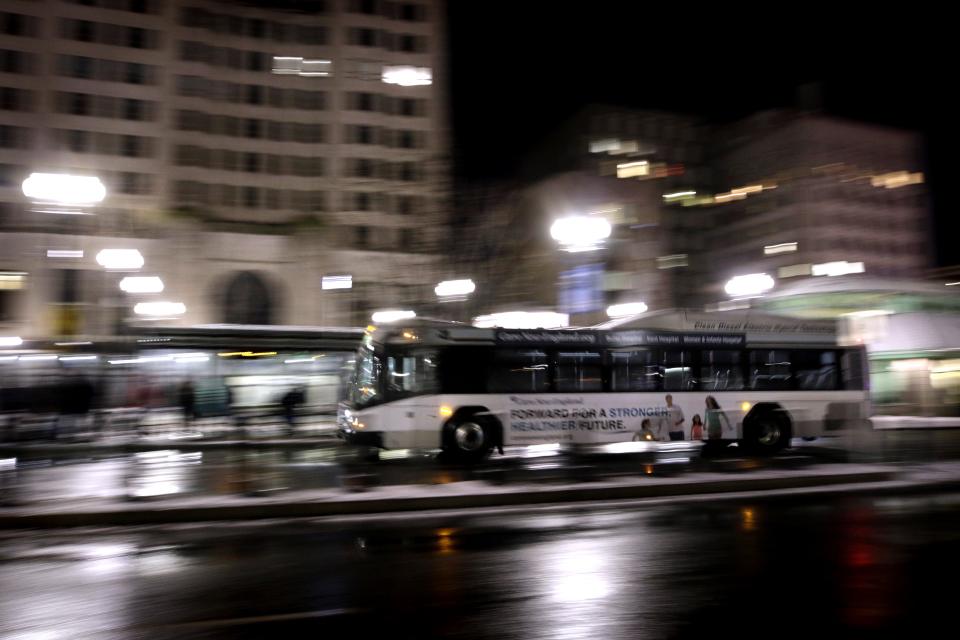RIPTA unfairly blamed for the fiscal cliff it faces | Opinion
Scott Wolf is executive director of Grow Smart RI. John Flaherty is deputy director of Grow Smart RI and a member of the RI Transit Riders.
In response to the Journal story “RIPTA board rebuffs Alviti’s call for outside review” (News, Oct. 13), the evidence has long been known that high-quality public transit is a valuable public good. In thriving, healthy communities across America and around the globe, public transit facilitates economic development, downtown and neighborhood revitalization, equitable access to opportunity and social cohesion. And states and metro regions are increasingly leveraging transit to reduce traffic emissions, meet urgent climate goals and boost production of housing near transit that’s more affordable in part because families can reduce the number of cars they need.
That’s why it’s so disconcerting that Rhode Island is being held back by those who perpetuate a decades old practice of undermining public confidence in our transit agency. The power struggle that continues for control of the Rhode Island Public Transit Authority is misguided at best and is based on a false narrative that RIPTA’s management is to blame for the fiscal cliff that it faces. This is a fiscal cliff threatening most other transit agencies across the nation, as federal aid to support revenue losses that were incurred due to the pandemic are exhausted.
More: RIPTA moves ahead on new central bus hub – but location is more of a mystery than ever
RIPTA may be among the most scrutinized public agencies in Rhode Island. Between 2002 and 2023, there have been numerous fiscal reviews and performance audits commissioned by previous governors, good government groups and the General Assembly. And the conclusions of these reviews have largely been the same – that RIPTA is well run and outperforms its peers in almost every key performance indicator. Something else they all point out: the agency has been chronically underfunded for years.

According to the Federal Transit Administration’s National Transit Database, Rhode Island ranks among the lowest in 2021 per capita state funding for transit at $19, especially when compared with other urbanized states in our region, including Connecticut ($68), Delaware ($101), Pennsylvania ($120), New Jersey ($143), Maryland ($199) and Massachusetts ($239), rounded to the nearest dollar.
Still, RIPTA provides more trips, across a larger area, at a more effective cost-per-trip than transit agencies serving similar populations anywhere in America.
What’s more, the agency has developed a bold, data-driven and publicly vetted vision and master plan for vastly improving service that will get more people where they’re going more conveniently, affordably and with dignity. That plan is now almost three years old with very little state commitment to its implementation.
More: This fare-free RIPTA route has been popular for a year, but soon the free rides will end
To be clear, no one is opposed to efficiency and accountability. We should always be seeking continual improvement and efficiencies. But we must stop fiddling while Rome burns. Left unaddressed, the fiscal cliff will mean devastating service cuts, disrupting tens of thousands of lives, many businesses and putting our economy at risk. And, a failure to aggressively implement the Transit Master Plan will represent a major missed economic, environmental and public health opportunity for Rhode Island.
So let’s get on with addressing the fiscal cliff, as other states are already doing, and finally press ahead with implementing the improvements outlined in the Transit Master Plan.
This article originally appeared on The Providence Journal: According to the Federal Transit Administration, RI ranks among the lowest in 2021 per capita state funding for transit.
